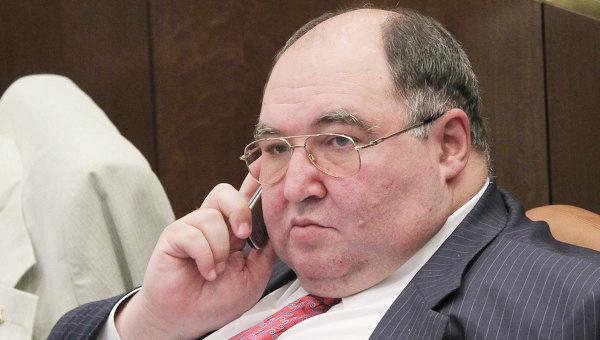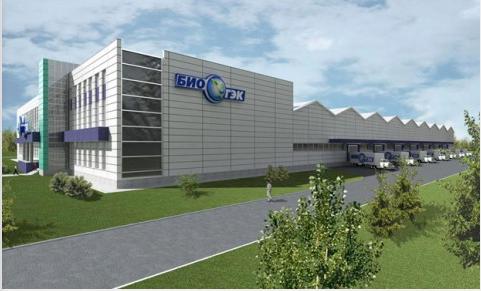On April 8, the web site Gazeta.ru published an article, entitled “Plan will bring catastrophe tomorrow.”
The article informed that the medications, which are according to the official government list are essential, started to disappear in Russia. Manufacturers of a number of low-cost drugs have suspended their production because, despite an 11% inflation rate in 2014 and 13% in 2015, the authorities have refused to raise the prices of medications. Most of the “essential” drugs are consumed by the segment of population whose medical expenses are paid by the state.
Meanwhile, recently Supreme Court of the Russian Federation ordered the Israeli group Teva Pharmaceuticals to pay 408 million rubles (more than $ 6 million) “loss of profits” to the Russian intermediary company Biotech. Teva refused to sell their unique product Copaxone through Biotech, because the price of the medicine would have become much higher.
In order to understand the meaning of this case it is very important to know the history of Biotech.
In 1991, the very moment when business became a legal occupation in Russia, Boris Spiegel, former Deputy Director of the Russian National Research Institute of Agricultural Biotechnology, got engaged in business. He created Biotech, a company, to supply medicines to hospitals, state financed social services and the military.The old science ties helped Spiegel to get necessary contracts. Apparently the old connections were not sufficient to build a big business. Then in 1995 Boris Spiegel became an adviser on social issues to the Speaker of the State Duma Gennady Seleznev. The Speaker and the businessman became friends. Seleznev introduced Spiegel to a young tenor Nikolai Baskov, who was becoming one of the top charismatic Russian stars, a friend to a lot of State officials. The pharmacist helped the singer with his career, and later Baskov married Spiegel’s daughter Svetlana.
Biotech was buying products from the Biosynthesis factory, located in the Penza region. When the government in 2002 started health care reform, Spiegel suggested to Seleznev a plan for the supply of medicines to social services and hospitals in Penza region. As a result Spiegel’s company became the exclusive supplier of drugs to state financed organizations in the region.
On the eve of the governor’s election of 2002 in Penza region, Baskov gave a number of free concerts, helping a local politician Vasily Bochkarev to win. A year later, the new governor offered to the politically minded pharmacist Boris Spiegel the place of representative of the region in the Federation Council (Russian analog of Senate).
Thus Boris Spiegel became a senator and as such by Russian law couldn’t run a business. He transferred all his Biotech stock to his wife. His younger business partner, Oleg Kovalev (the owner of 23% of the company), became the official President of the company.
Biotech continued to do business mainly with the State companies. It participated in regional competitions for the supply of drugs to the Interior Ministry, the Ministry of Defense and federal programs. A lot of money were involved. For example, $55 million were budgeted in 2005 just to fight tuberculosis. In such cases, the vendor does not have to invest in marketing. The vendor just needs to work out the mechanism of participation in the state tenders.For Biotech it was easy. Its competitors believed that Biotech was so well connected that no one dared to openly oppose it. “We participate in a tender only if Spiegel has no objections “, said the director of one large-scale pharmaceutical production company, a potential competitor of Biotech.
However, by only selling drugs to state organizations, Biotech continued to drag behind those distributors who specialized in commercial deliveries. Its revenues in 2004 were one sixth that of the market leader Protek ($200 million compared to $1.2 billion). At the end of 2005, Biotech occupied only eighth place among distributors in terms of turnover.
In 2006 it changed. In the first nine months of 2006 “Biotech” took the third place in terms of sales among Russian drugs suppliers. What happened?
The state has increased its presence in the drug market. It launched a program of Additional Medicine Provision (AMP). $1.7 billion were allocated to the purchase of drugs for social services, more than six times more than in 2004. Deliveries of preferential medicines to pharmacies were entrusted to five authorized distributors, appointed for each part of the territory of Russia. Biotech, not then the largest distributor in the area at the moment, got the Volga Federal District.
In 2005, revenue of Biotech came to $345 million (75% growth compared to the previous year).
The company finally became able to carry out long-held dream of buying the Volga District drug plant Biosynthesis and vitamin plant Marbiopharm. According to estimates, the company bought the first plant for $30 million, and the second for $20 million.
Biosynthesis right away launched a new and the most ambitious project: sale of genetically engineered insulin. More than 80% of the insulin in the country was delivered to beneficiaries by the state (in the amount of $100-150 million per year).
Biotech claims to cover 30% of this market, relying on a Chinese product. According to Spiegel’s statement it is much better than American insulin. It certainly 3.5 times cheaper. The Chinese insulin represents just 0.06% of the world’s market. Biotech immediately started shipping insulin from China, and Biosynthesis was packing it for sales in Russia.
The finances for Additional Medicine Provision (AMP) program were distributed among the territories by the special Federal organization, one of the biggest of such organizations in Russia: Federal Fund of the Obligatory Medical Insurance (FFOMI).
In November 2006 Russians were shocked by almost unheard of news: eleven government officials, practically the entire leadership, of FFOMI, were arrested. It turned out that FFOMI officials were pocketing 5% to 7% of the funds they gave to each territory. They were sharing their illegal profits with some people in FSB (Federal Security Service), but it turned out that some FSB agents that were not paid uncovered the crime.
The heads of FFOMI were sentenced to nine years in prison. Those who were bribing the officials were punished too. But not the President of Biotech, Oleg Kovalev. He couldn’t attend the court, as he was out of Russia, tending to his medical problems in Israel. The charge against him was not proven in court.
Today Biotech includes four plants and one of the largest pharmacy chains in Russia. Companies included in the Biotech are occupying a leading position in the industry. For example, plant Biodez located in Moscow, is the only company in the country that produces disinfectants.



